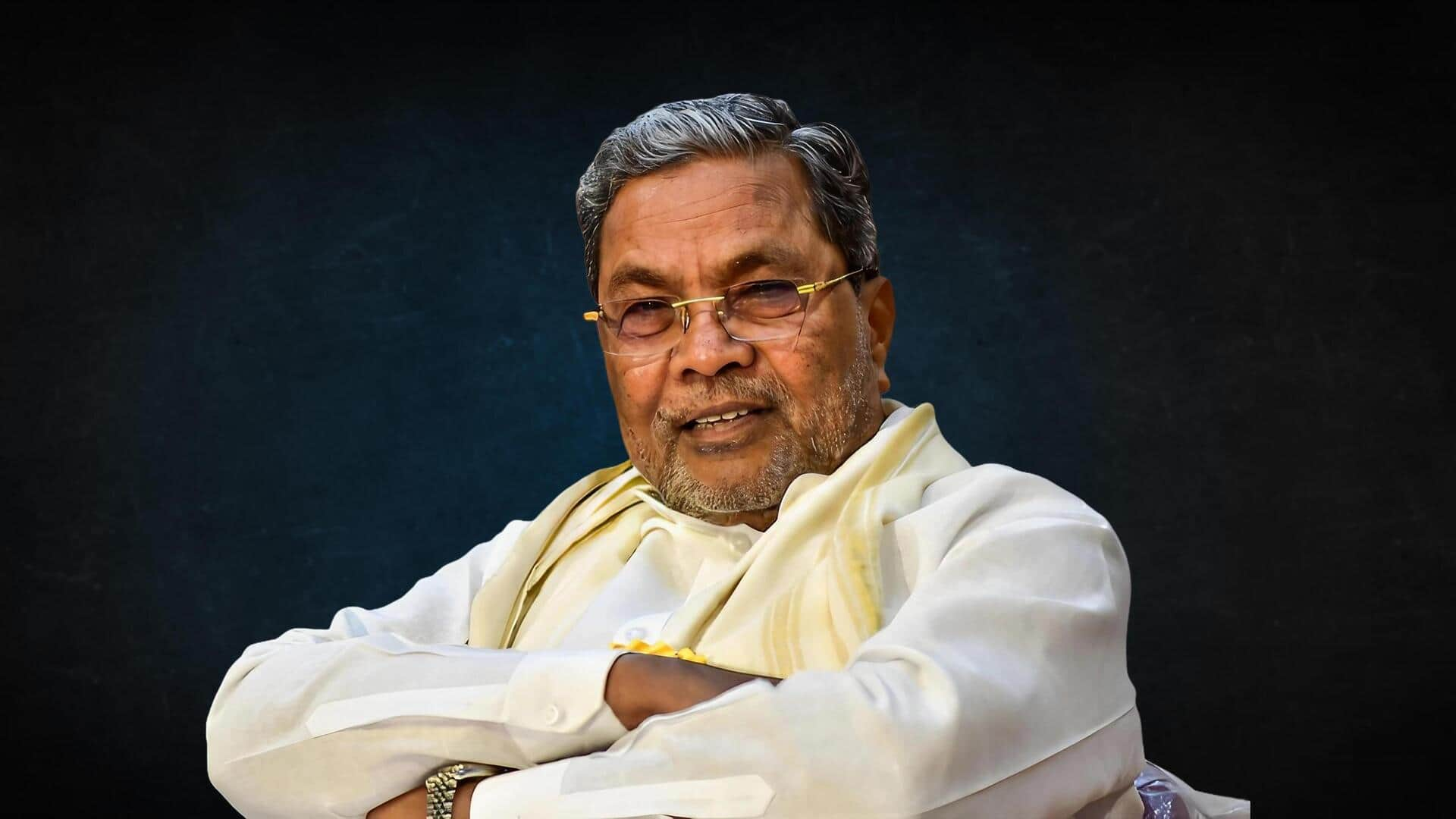
After Udhayanidhi, Siddaramaiah's comments on temple sparks row
What's the story
Karnataka Chief Minister Siddaramaiah's recent comments on the dress code in some Hindu temples have fueled an already heated debate. During an event celebrating the 169th birth anniversary of social reformer Narayana Guru, Siddaramaiah recalled being asked to remove his shirt before entering a Kerala temple. He said he refused, calling it an "inhuman practice" and an insult to God. Following this, the Bharatiya Janata Party (BJP) accused the Congress of being anti-Hindu and trying to appease "a particular community."
Context
Why does this story matter?
The Congress-led opposition alliance Indian National Developmental Inclusive Alliance (INDIA) is trying to avoid the "anti-Hindu" tag since Dravida Munnetra Kazhagam (DMK) leader Udhayanidhi Stalin called for the eradication of Sanatan Dharma and compared it to diseases, triggering a controversy. The Sanatan Dharma is commonly known as a synonym for Hinduism. Now, the Congress leader's statement could embolden the BJP's allegations, weakening the opposition's prospects in the upcoming Lok Sabha elections.
Details
What did Siddaramaiah say?
Siddaramaiah said, "I had once gone to a temple in Kerala, where they asked me to remove my shirt and enter. I told them I won't enter the temple and pray from outside. They weren't asking everyone to remove their shirts, but just a few. This practice is inhumane... All are equal before god." Several South Indian temples require men to remove their upper body clothes before approaching the sanctum sanctorum and wear an angavastra—a shoulder cloth or stole-like garment.
What Next?
BJP labels Siddaramaiah 'anti-Hindu'
"When you go to Kerala temples, you are not supposed to wear shirts. It has been the norm for a thousand years, and we are all following it," BJP's Bengaluru Central MP, PC Mohan said. "Some temples restrict jeans and shorts. Earlier, we would all wear dhoti. There should be some dress code," he added. Prominent temples like Kerala's Padmanabhaswamy Temple, Kukke Subramanya and Dharmasthala Manjunatha Swamy temples in Karnataka, and Andhra Pradesh's Mantralayam Temple reportedly follow this practice.